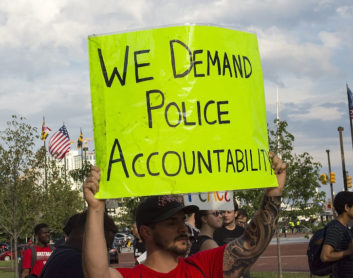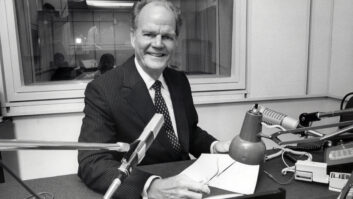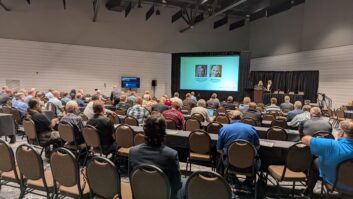The author is membership program director of the National Federation of Community Broadcasters. NFCB commentaries are featured regularly at www.radioworld.com.
As you read this column, the nation stands in outrage over the horrific killing of George Floyd by now-fired Minnesota police officer Derek Chauvin. Three other officers — Tou Thao, J Alexander Kueng, Thomas K. Lane — were also fired for an incident that has been shared countless times on social media, but they have not been charged.
Floyd’s murder has ignited demonstrations and street conflicts with police officers that have gone global. It came on the heels of much publicized racially charged cases, including “Central Park Karen” Amy Cooper calling New York City police on an African-American man who asked her to leash her dog; the slaying of 25-year-old Ahmaud Arbery by vigilantes in Georgia; and Breanna Taylor, killed by Kentucky police in another shocking case. The outpouring of grief and fury has rattled every corner of the United States, right down to the White House, where law enforcement used tear gas and other methods to disperse protesters.
[Read: Community Broadcaster: Four Zoom Tips for Community Radio]
Community radio is, at its essence, about people and communities. We long to tell the stories of those affected by the George Floyd tragedy and the latest cases. We also do our best to contextualize the news now with history and analysis. In pandemic times, many community radio stations are still operating at limited capacity. The urgency of now compels us to step in and support our communities.
How can a community radio station address its local needs related to the nationwide demonstrations? Here are a few key ways:
Provide relevant content in the form that works for your station. The operative phrase is what works for your station. Decide what you reasonably can do given COVID-19 and other restrictions on premises. Your station has a lot of options. You could spend a day doing thematic music. You could host on-air roundtables remotely via Skype, Zoom or your platform of choice. You could broadcast local rallies or host call-in programming to let listeners speak up about how they feel. You could host a stream on your station social media channels of conversation and coverage. Creativity can be your guide here.
If you choose or are able to do guests on the air, I believe your audience would be best served to hear voices beyond the streets, such as those working on nationwide police accountability and reform. Passions are high now, but the change that so many desire is rooted in better regulations, policy and penalties for misconduct.

Set up a promotional strategy for whatever approach you take. If your station is going to invest the time and resources to engage listeners in this critical story, take a step back and develop a plan for ensuring the largest number of people can experience your efforts. On-air promos, frequent social media posts with associated hashtags and email blasts are commonly used. You might also want to consider targeting areas you are not as strong, so to reach those your station may not typically engage with.
Express long-term commitments your station can make for diversity and inclusion. Although a statement expressing your organization’s horror about the killing of George Floyd is thoughtful, this is a moment for your station to state its values and vision to your supporters. It is also a chance to build trust and be accountable for not just words you may state about inclusion and fairness, but actions you are taking and will take.
While it is tempting to promise diverse programming, you should give strong consideration to the institutional commitments you can make in hiring, leadership development opportunities and community alliances. Whatever you decide, you should tie it all back to your mission statement and your history. Let listeners in on what you do, why you do it, and how this flashpoint is galvanizing you to action.
George Floyd will be laid to rest June 9 in Houston. A man many did not know has crystallized so much for many Americans. Community radio can play a crucial role in healing.







